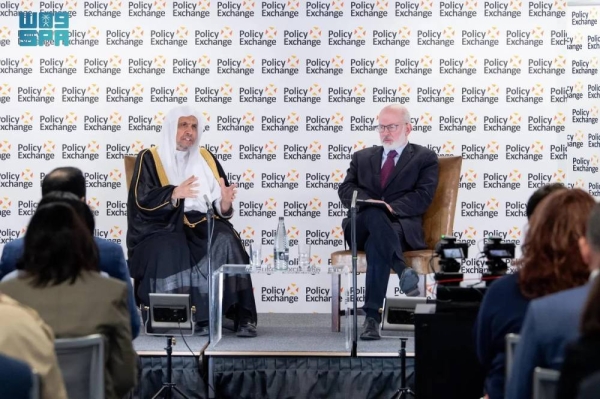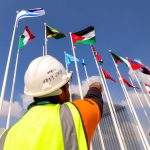In a recent dialogue at the Policy Exchange research center in London, Sheikh Dr. Mohammed Al-Issa, Secretary-General of the Muslim World League, called for immediate international action to end the tragedy in Gaza. He emphasized the importance of the international community acting with good conscience and historical responsibility to halt the ongoing mass killings. Al-Issa highlighted the need for effective dialogue among diverse human communities to foster understanding, cooperation, and peace in the world while also recognizing and respecting religious and cultural differences. He also addressed the dangers of hate speech, including Islamophobia, and proposed solutions to address the conflict between religious convictions and the authority of the law.
Al-Issa discussed the necessity of promoting civilizational values outlined in the “Charter of Makkah” and emphasized the importance of training imams on these principles. He commended the British Islamic community for their contributions to the development, stability, and prosperity of their country. Al-Issa stressed that extremism represents itself and does not truly reflect the broader religion, culture, or ethnicity it claims to represent, as it is rejected by moderate elements within those identities.
The Secretary-General of the Muslim World League highlighted the tendency towards hatred and outlined methods to address it. He emphasized the need for a more inclusive and respectful society that values diversity and works towards peaceful coexistence. Al-Issa also discussed the project to train imams on the values outlined in the “Charter of Makkah” as a means of promoting understanding and cooperation among different communities. He called for greater awareness of the dangers of hate speech and Islamophobia and proposed solutions to combat these issues.
As the Chairman of the Association of Muslim Scholars, Al-Issa emphasized the importance of recognizing and respecting the religious and cultural differences within society. He stressed that extremism does not accurately represent the broader religion, culture, or ethnicity it claims to represent, and that moderate elements within these identities reject it. Al-Issa called for international action to end the tragedy in Gaza and urged the international community to act with compassion and responsibility towards ending the mass killings. He proposed dialogue among diverse human communities as a means of fostering understanding, cooperation, and peace in the world, while addressing the dangers of hate speech, including Islamophobia.











